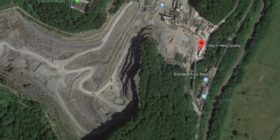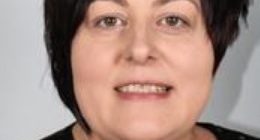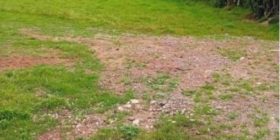Breast cancer patients benefit from Cardiff Met reflexology study

A feasibility study conducted by researchers at Cardiff Metropolitan University has found that reflexology reduces arm swelling in women with breast-cancer related lymphoedema.
Lymphoedema is a harmful and persistent side effect of breast cancer treatment, such as mastectomy, affecting approximately 20% of breast cancer survivors. This condition is painful and debilitating, making simple tasks such as driving and gardening more difficult.
Typical treatments involve compression sleeves and manual lymphatic drainage massage – both of which, although moderately reducing arm swelling, can cause discomfort. Women who wear the sleeve frequently report a negative psychological effect on their wellbeing.
This uncontrolled trial, which was funded by Tenovus Cancer Care and is featured in the Complementary Therapies in Clinical Practice journal, saw 26 women from Bridgend, Cardiff and Tredegar receiving reflexology lymphatic drainage weekly for four consecutive weeks. These treatments involved 40 minutes of stimulation to specific zones on the feet which are presumed to correspond to the lymphatic and renal systems.
The team of researchers from Cardiff Met’s Complementary Healthcare Clinic measured a reduction in the volume of the affected arm – across the group the average percentage difference was 36%. Initial indications suggest that this reduction may be sustained for up to six months.
In addition, the researchers recorded a significant increase in patient wellbeing with comments highlighting less pain, more movement and a boost in body image.
This study was conducted after a third year BSc Complementary Healthcare student, Sally Kay, developed the new technique of reflexology lymphatic drainage as part of her final year dissertation. Sally won the Federation of Holistic Therapists’ excellence in practice award for research and development into reflexology lymph drainage for her work.
Speaking about this study, Senior Lecturer at Cardiff School of Health Science and project coordinator for this study, Judith Whatley said:
“The Complementary Healthcare degree programme at Cardiff Met is committed to developing the evidence base for complementary therapeutic approaches. Many of our placements are in palliative care where this kind of work has tremendous impact.
“Looking to the future, we will continue further research into the tracking of lymphatic fluid and the impact of reflexology on its movement in and around damaged tissue.”
Sally Kay added:
“The effect of reflexology on clients with this sort of lymphoedema has never been researched and measured in this way before. I am proud to have been involved in this project, and grateful for the opportunity to research and develop reflexology lymphatic drainage while studying at Cardiff Metropolitan where this kind of innovative project is nurtured.”
Breast cancer survivor, Sheila Harrison from Barry took part in the study and said:
“After having my lymph nodes removed I wore compression garments on my arm and hand for five years. They were restrictive, very uncomfortable and a constant reminder of the breast cancer with people constantly asking why I was wearing it.
“Soon after starting this reflexology treatment I found that I didn’t have to wear the sleeve and glove any more which is fantastic. I feel normal now – the same as everyone else.
“It was very interesting to take part in the study and I continue to receive reflexology sessions as it has made such a huge difference to my life.”
Make a small donation to support life changing research like this at Cardiff Met
Cardiff Metropolitan University is a Registered Charity*. Since we started fundraising in 2009 we have received over £1.5 million in charitable donations. The Development Fund was set up in to enable alumni, staff and friends to support innovative projects that actively transform lives. By making a donation to the Development Fund you will help the next generation to have a better future.You can find out more about the Development Fund here.
Spotted something? Got a story? Email News@News.Wales












